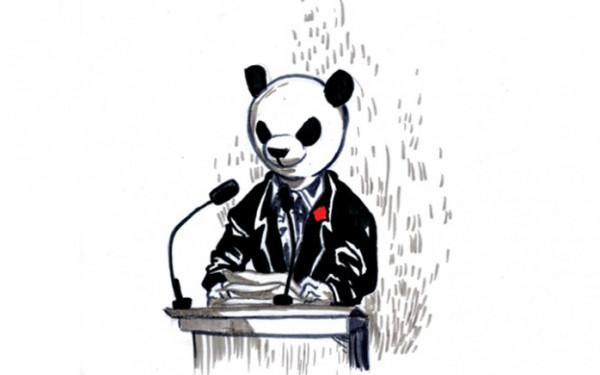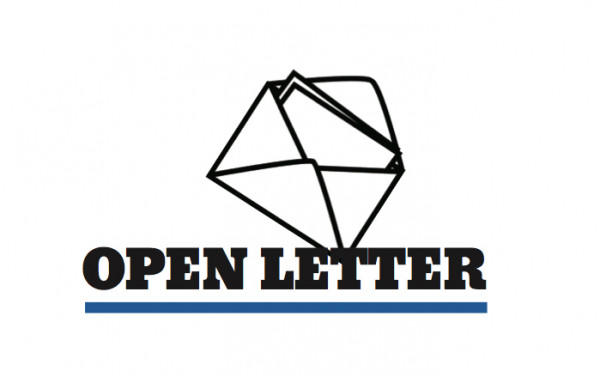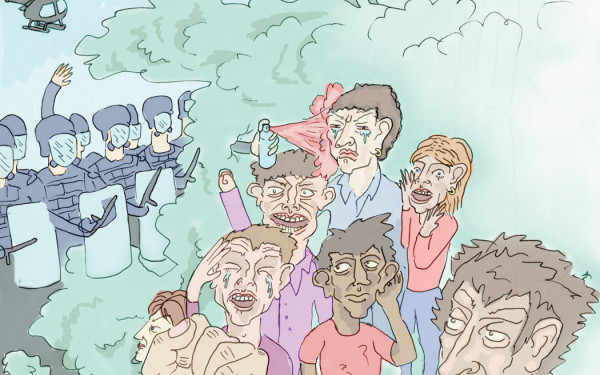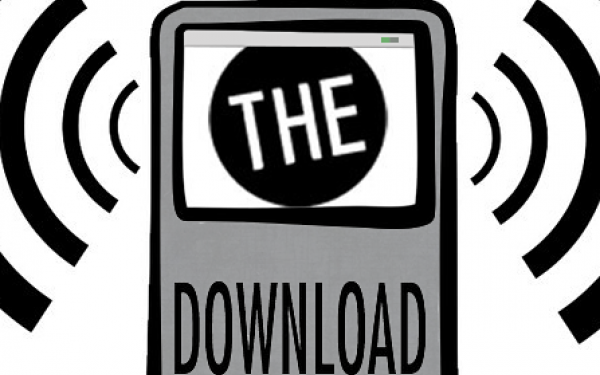Editorial
Fight P-6
There comes a time when large-scale acts of civil disobedience are necessary. That time is now.
In recent weeks, the City of Montreal and its police have violated the rights of hundreds of people by enforcing municipal bylaw P-6 to bring excessively violent ends to peaceful demonstrations in the city.
The two key elements of the bylaw make the wearing of masks illegal during a demonstration and require the organizers of any protest or demonstration to submit an itinerary or route to the police in advance. In response to these infractions, the police surround the area—trapping both demonstrators and bystanders inside in a technique known as kettling.
On March 15, over 250 people were detained at the annual protest against police brutality in downtown Montreal. Preventative arrests were made prior to the police instigating a series of unnecessary violent acts on a relatively small group of protesters and journalists.
On March 22, the anniversary of the previous year’s massive peaceful demonstration, another 250 people were detained in the cold for hours and fined before the demonstration could move more than a few blocks.
On April 5, over 270 people were arrested and fined over $600 each for assembling in the streets in protest of, ironically enough, the same bylaw under which they were fined.
The protest—which never truly began—was described as a “family friendly” civil disobedience action aimed at addressing the unconstitutionality of bylaw P-6.
The organizers of this demonstration are not the first to point out the problematic nature of bylaw P-6.
The Canadian Civil Liberties Association has recently published letters to Montreal Mayor Michael Applebaum and to the Service de police de la Ville de Montréal, condemning P-6 and demanding it be repealed on several grounds. The Quebec Bar Association has done the same.
Most recently, the Association of Progressive Jurists have followed suit. They demanded a public inquiry into police actions, saying that “each day that passes without it erodes our fundamental rights and liberties.”
On April 8, according to The Gazette, Vision Montreal and Projet Montreal, the city’s two largest opposition parties, confirmed that they are both against the bylaw. One Projet Montreal councillor went so far as to call it “obsolete.”
We’re reaching a tipping point—again.
Last year, when revisions were made to bylaw P-6 to include the anti-mask, pro-itinerary provisions, there was a public outcry. The province galvanized around the undeniable unconstitutionality of the Liberal government’s similar Bill 78 and took to the streets to make it known.
The City of Montreal pushed it back under the rug, swearing not to use it.
But now we’re moving backwards.
Protests today exhibit one fundamental difference from protests happening even a few months ago. People are no longer only rallying against a government they don’t believe in, or austerity measures that affect public services.
It’s now devolved to a debate about our freedom to assemble.
There’s hardly any discourse, just a weekly corralling of demonstrators that have done nothing to provoke such a brutal response.
The Concordia Student Union is calling it “collective censorship,” and we couldn’t agree more. When a demonstration is prevented from happening, the message can’t get out in the same way it did last spring.
What we’re left with instead is a more simple, more alarming message: The city is trying to outlaw protesting through the heavy-handed enforcement of a bylaw.
What you need to know, if you are out there demonstrating, is that a bylaw infraction is not a criminal offence, and the fact that the police are resorting to using batons and tear gas to enforce a bylaw is ridiculous. As long as demonstrations remain peaceful, there’s no cause for such a response on the SPVM’s part.
This is The Link’s last print issue until the fall. Several of our reporters, and others we work with, have experienced much of the same unjust treatment that people protesting have—we’ve been hit, pepper-sprayed, arrested and fined while trying to do our jobs.
We’ll continue to cover this issue for as long as it continues.
But for now this is what we’re left with, and if the police quash our freedom to assemble with brute force and huge fines, then censorship prevails.
If you’ve been ticketed, we’re calling on you to protest once again—don’t pay that ticket. It’s a sentiment that’s already growing and holds its strength in numbers.
The police ending a gathering doesn’t have to mean the message is stamped out—it does, however, make that message all the more urgent.
For more on The Link’s stance against bylaw P-6 listen to Link Radio: April 11, 2013.

.ed1.WEB_715_370_90.jpg)
_600_832_s.png)




